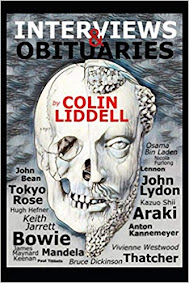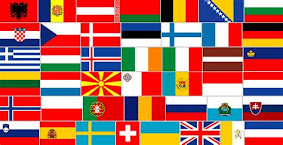 |
The Mandate of Heaven has been
noticeably absent |
With the death of her husband (and the love of her life) Prince Philip and recent health scares, it looks like Queen Elizabeth's long tenure as monarch may be coming to its natural end. The Queen is so well thought of that there are concerns that, without her, the Royal Family will fall into a steep decline. However, what is the bigger picture here? Has the Queen really been all that she's cracked up to be?
While we have heard lots of twaddle about what a subtle manager of the national psyche she is and how similar to us she actually is (minus her diamonds, caviar, and gilded carriages), nobody seems to have much of a grasp on what monarchy in the 21st century actually is, or of the rationale behind it. The gap where that unasked and unanswered question lies seems for the most part to be clogged with trashy platitudes like “if we didn’t have a Queen we’d have to have a president” and “I suppose it’s good for the tourists.” Very profound!
The problem the British Monarch has is not only that he or she doesn’t rule but that everybody, including the tourists, knows that he or she doesn’t rule. We even know that the Honours List isn’t the responsibility of the Monarch, but merely something the leaders of the Labour, Tory, and Lib-Dem Parties cook up between themselves to give various cronies the rewards they couldn't earn at the ballot box.
The fact that the Queen has existed in this odd vacuum may explain all the irritatingly deferential talk she generates about what a graceful and dignified woman she is, and even the largely negative attitude most people have about her successor Prince Charles. For many years there was even a hope that the Queen would outlive Charles so that Prince William could directly succeed her. That, alas, seems unlikely to happen.
This is the approximate state of thinking vis-à-vis the Royal Family, but somehow it completely misses the point. Whether Queen Liz had a dull, tweedy dignity that gradually grew on ‘one,’ or whether Prince Charles is a bit of an eccentric nincompoop with a penchant for fads is utterly irrelevant. That has nothing to do with the essence of royalty.
Monarchs who don’t rule – and British monarchs ceased ruling sometime in the 18th century – can only have one function, that is, to act as talismans or lucky charms for their nation. If they succeed in bringing luck, then they can be considered to have "done their job," regardless of their other imperfections, whether these include talking to trees (George III), marrying American divorcees (Edward VIII), or stuttering (George VI). Selection, it should be remembered, is not by ballot, but merely consists of appearing in the right birth canal at the right moment.
Monarchy without power not only has a hint of the mystical about it, it is in fact entirely mystical and nothing else but mystical, and it must be judged in these terms, rather in the same way as you would judge the juju from your local witch doctor (a real possibility in modern Britain).
So, what are we to make of Liz? What kind of totem or lucky charm has she been to the Great British nation? Luckily – or rather unluckily – her long stint as monarch has made this abundantly clear. While Queen Victoria’s reign saw Britain maintain and even expand its position as the leading country of the world, and the reigns of George V and VI saw Britain successfully, but with great cost, ride out two terrible world wars, Liz’s reign has seen Britain tumble not only off the roof but deep into the basement, where a mineshaft is now threatening to open up and swallow the country even deeper.
 |
| The Coronation 1953: hopes were high. |
Back in 1952 Britain had a massive manufacturing sector, with a leading position in some of the world’s cutting-edge technologies, like jet travel and nuclear power. It also had an extensive if somewhat reduced overseas network of colonies and semi-colonies. To these assets could also be added an indigenous, socially harmonious, and hard-working population that did not need to be policed by millions of CCTV cameras and thought crime legislation.
In an era before welfare moms, gay marriage, and rocketing divorce, the family structure, the basis of society, was in particularly good health. Street parties in 1953 (when the Coronation was held) were natural and spontaneous. Not contrived and awkward as they were during the Queens Diamond Jubilee some years ago.
Following Lizzie’s coronation – which probably broke some unknown taboo by being televised – the country’s overseas influence increasingly evaporated, with foreign policy parcelled off to Washington and everything else to Brussels and a home-grown, Stasi-like, nanny state commissariat.
The once proud manufacturing industries and stable social structure now lie in ruins, as the country becomes a dumping ground for Third World exports, immigration, and culture. While many countries have faced similar problems, there is no denying Britain’s shocking relative decline since 1952, during a period when we faced no serious wars or proximate enemies.
Of course, none of this is directly Liz’s fault in the same way that the achievements of Queen Victoria's reign were not directly or even indirectly her doing. But if there is any point in having a powerless monarch, surely that point is in having them as a lucky charm or a glorified rabbit’s foot. This was often how kings and queens were considered by the ancients. The Chinese even coined a phrase for it, “the mandate of heaven,” and promptly replaced them when they lost that.
Yes, Lizzie, as she nears the terminus, can look back on a long record of behaving in an exemplary and dignified manner -- and maybe not shooting too many deer on her Balmoral Estate -- but, at the end of the day, this is a woman who simply does not have the mandate of heaven, and while she has sailed serenely enough through her own reign, the country has sunk around her.
An earlier version of this article was published here on the occasion of the Queen's Diamond Jubilee.
Connected Connect:
Elizabeth the Useless: Sixty Years a Rubber Stamp 




























The Queen has become much more political over the last year. There is the decision to award Tony Blair the Garter--which the PM does not advise on and is her own decision--and the constant comments by the Queen, Prince Charles and Prince William on climate change. Prince William has got into causes like condemning "racism" in football, openly saying the other day he wished more Afghan refugees had been brought here, and emoting on his mental health issues in a way previous Royals would not have. His wife, Catherine, made a show of support for the protests after a white policeman raped and murdered a woman, but the case was curiously well-chosen for Royal support, as black men are more likely to be rapists, and Catherine has said nothing about the rape of underage girls by Pakistani gangs in numerous cities. I feel that with the death of Prince Philip, control over the family is drifting toward Prince Charles and Prince William, and they have made a collective decision to go woke. The old days when the Royals stayed out of politics are well over. (On Tony Blair: he openly held talks with the EU to try to stop Brexit, which could on a strict interpretation of the Privy Counsellor Oath see him arrested. This is open treason, for which she rewards him.)
ReplyDelete